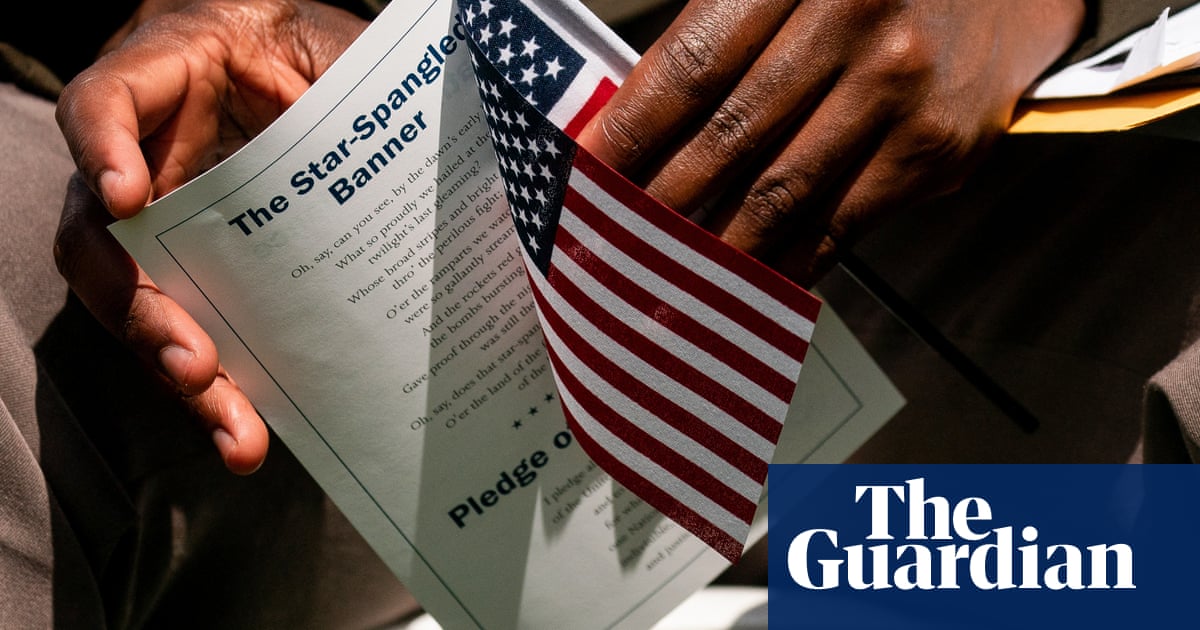TheUS supreme courtwill hear arguments on Thursday in a dispute that could significantly expand presidential power despite ostensibly focusing onDonald Trump’s contentious executive order ending birthright citizenship.
The trio of cases before the court stem from the president’s January executive order that would deny US citizenship to babies born on American soil if their parents aren’t citizens or permanent residents. The plan is likely to be ultimately struck down, as it directly contradicts the 14th amendment, which grants citizenship to “all persons born or naturalized in the United States”.
But Trump’s legal team isn’t asking the supreme court to rule on whether his policy is constitutional. Instead, they are challenging whether lower court judges should be able to block presidential orders nationwide – a move that could overall weaken judicial checks on executive power.
Three federal judges have blocked the policy nationwide, including US district judge Deborah Boardman, who ruled that “no court in the country has ever endorsed the president’s interpretation.”
But the justice department argues these “nationwide injunctions” unfairly tie the president’s hands. “These injunctions have reached epidemic proportions since the start of the Trump Administration,” the department wrote in a March filing. The administration is asking for the scope of the injunctions to be narrowed, so they only apply to the people, organizations or states that sued.
If Trump prevails, his administration could potentially enforce his desired citizenship policy in parts of the country where specific courts haven’t blocked it – creating different citizenship rules in different states while legal challenges continue.
The supreme court’s conservative majority, which includes three Trump appointees, has previously signaled skepticism about nationwide injunctions. Justice Neil Gorsuch called the issue a “question of great significance” requiring the court’s attention.
Critics warn that limiting judges’ power to block policies nationwide would force people to file thousands of individual lawsuits to protect their rights.
“If you literally have to bring separate cases for every single plaintiff, you are limiting the ability of courts to declare what the law is and protect people,” Colorado attorney general Phil Weiser, who joined legal challenges to Trump’s order, toldNBC News.
By the end of March, Trump had faced at least 17 nationwide injunctions since returning to office in January, according to theCongressional Research Service. His first term saw 86 such rulings – far more than other presidents including Joe Biden, who saw 28; Barack Obama who saw 12; and George W Bush who saw six. Trump has also faced at least 328 lawsuits nationwide as of 1 May, with judges blocking his actions more than 200 times, according to aBloomberg analysis.
Sign up toThis Week in Trumpland
A deep dive into the policies, controversies and oddities surrounding the Trump administration
after newsletter promotion
The administration has said that universal injunctions “have reached epidemic proportions since the start of” Trump’s second term, and claims they have prevented the executive branch “from performing its constitutional functions before any courts fully examine the merits of those actions”.
Several Democratic attorneys general urged the court not to restrict judicial power at a time when “the government is aggressively issuing executive orders of dubious legality”.
Three separate lawsuits have been consolidated into one challenge before the court on Thursday, which came via an emergency appeal in the court’s so-called “shadow docket”. The court’s ruling is expected by early July.
